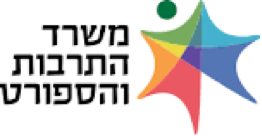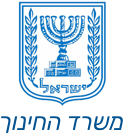The Chabad Telegram: 80 Years Later
The gabbai (assistant) of the Chabad Lubavitch synagogue in Tel Aviv received a telegram from the head of the Jewish community in Kuybyshev (now Samara, Russia), M. Feigen, requesting to immediatly send lulavs (palm fronds), etrogs (citrons), and hadasim (myrtle) by air mail

This news, published on the eve of Sukkot in the year 5704 (1943) in the “Davar” newspaper, made the writer Natan Alterman very emotional, and he sat down to write a poem.
And before the poem, a little background on the period and the poet.
It was the year 5704 (1943). The world war was raging and the Nazi bloodbath did not stop for even a moment.
Opposing Germany’s troops was Soviet Russia, led by its leader Joseph Stalin, the tyrannical communist whose military forces had just begun to reap successes on the battlefields, and which exercised strict military censorship on all mail sent to and from Russia.
This small piece of news, regarding the telegram sent from the Jewish community in Kuybyshev, describing their request to “immediately send from the Land of Israel by airmail lulavs, etrogs, and hadasim,” sparked the imagination of Natan Alterman, who was one of the most respected poets among of modern Hebrew poetry. Alterman, born in Warsaw, who had roots in Chabad chasidism, and who in general had a sympathetic and warm attitude to religion and tradition, sat down to write a poem about an imaginary dialogue in the Soviet censorship office in light of the letter sent by the members of the Jewish community groaning somewhere in Soviet Russia during the bloody war, who faced death threats and excommunications by the Soviet-Communist government that destroyed Judaism throughout the Soviet Union and banned the holding of any religious ceremonies.
Here are the words to the poem, which was published in the newspaper “Davar, the daily newspaper of the General Histadrut (workers’ union).
Transcription:
The Chabad chassidim in Russia sent a telegram to Tel Aviv regarding the delivery of etrogs and lulavs. On its way, the telegram reached the hands of the Russian military censor, and there:
He lifted his head
The military censor
And his gaze flashed, suspicious and sharp,
And he turned this way and that
And he asked clandestinely:
Shto takoyeh (what is) Chabad?
Then the secretary groaned: we will search in the boxes
And we will check in alphabetical files.
Brother… many and complicated are the acronyms
Of the Soviet government institutions…
They pop up nowadays one by one
And you deciphered their names…
And ask an unpleasant question… you will fail in Chabad
And you suffered from the hands of the inspector!
Then the guard officer David Schneerson entered,
And the censor hinted to him: Please listen, Davidkeh!
There is no one like you who knows the intricacies of government,
Please, what is Chabad? Please, I had a comrade here!
And Officer Schneerson smiled, pondering,
When he reached out to the writing,
And he spoke: No Chabad, dear comrade censor,
No Chabad, comrade censor, Chabad!
Hear Gregory, hear Grisha my brother, son of Ignancy,
You will understand if you listen to me.
Oh Chabad! First of all, it is an anti-Nazi organization,
Anti-Nazi, brother, absolutely!
They do not recognize despair and surrender
And they are hot as a blazing fire!
(If they had the second front,
It would already be open, brother.)
And their confidence is strong from every trouble and disaster
And their confidence is worth battalions!
Thus their leader Schneerson ordered them,
And I’m one of those Schneersons…
And in my words about them
I will feel in my heart
Because that spark will never go out in me!
And not once in battle, Grisha, believe me,
The fire-flame of Chabad is burning in me!
Then there is no danger and no fear, Gregory!
There is nothing in the world that is impossible!
Good thing we have historical materialism
But it’s good to have that too, isn’t it?
So Gregory said: Yes, David, I am a gentile
But I told you, I’m not gullible.
We also remember Dimitri Donskoy,
Although he is not a native of the Soviet regime.
Because past and present join as one
In a nation on fire.
And from Libya to the Stalingrad front
The grandchildren of Chabad did not shame Chabad…
Forgive me Davidkeh, I’m emotional.
Thus spoke the censor and he stood up and marched
Like a dream called: blindness
And it drowned in the shadow of a Chabad telegram
The censorship seal.
(Courtesyof Chabad online)








